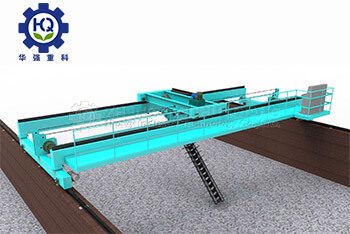Fermentation method of Organic fertilizer production line with annual output of 50000 tons
With the rapid development of animal husbandry, a large amount of feces and sewage have been generated. The harmful elements in these feces seriously exceed the standard, making it difficult to treat them with traditional methods of returning them to the fields. In view of this situation, people have developed Organic fertilizer equipment with movable and efficient solid-liquid separation technology as the core and integrated fertilizer production equipment such as high-efficiency mixer, dumper, granulator, etc.

The fermentation method of the production line of Organic fertilizer with an annual output of 50000 tons of straw, livestock and poultry manure is as follows:
1. Stack cow dung, straw, straw and other auxiliary materials and Fermentation starter in a certain proportion in the fermentation site.
2. The compost can be turned over after the fermentation temperature rises. When the fermentation temperature is about to reach 70 ℃, the Organic fertilizer turning machine shall be used to turn over the compost once every other period of time.
3. When the compost shows a temperature drop, loose materials, no odor, slightly ammonia odor, and white hyphae in the pile, it indicates that the Manure has been fermented and is ready for the next process.
4. The Manure is transported to the production workshop by forklift, and is made into granular Manure through a series of production processes and packaged into bags.
What are the purposes and characteristics of livestock and poultry manure fermentation and tipping equipment? Use of Manure fermentation equipment:
1. Mixing function in raw material conditioning.
In fertilizer production, it is necessary to add some auxiliary materials to adjust the carbon nitrogen ratio, acidity, water content, etc. of the raw materials. The main raw materials and various auxiliary materials roughly stacked together in proportion can be stirred by a stacker to achieve uniform mixing and tempering.
2. Adjust the temperature of the raw material pile.
During the operation of the tipping machine, the raw material pellets are fully in contact and mixed with the air. The material pile can contain a large amount of fresh air, which helps aerobic microorganisms to actively produce fermentation heat and increase the stack temperature; When the temperature increases, the supplement of fresh air can lower the stack temperature. A state of alternating medium temperature, high temperature, medium temperature, and high temperature is formed, and various beneficial microorganisms rapidly grow and reproduce in the temperature range they adapt to.
3. Improve the permeability of raw material piles.
The flipping system can process materials into small clumps, making the thick and dense material pile fluffy and elastic, forming suitable porosity.
4. Adjust the moisture content of the raw material pile.
The suitable water content for raw material fermentation is about 55%, and the water content of finished Manure is below 20%. During fermentation, biochemical reactions generate new water, and the consumption of raw materials by microorganisms also causes water to lose its carrier and free up. Therefore, with the process of fertilizer production, timely reduction of water content, in addition to evaporation formed by heat conduction, the overturning of raw materials by the stacker will result in forced water vapor emission.
5. Special requirements for achieving composting processes.
For example, crushing raw materials, giving them a certain shape or achieving quantitative displacement of raw materials.
评论
发表评论